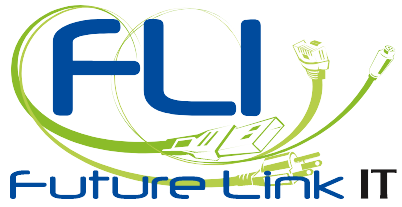 I’ve got a joke for you… a businessman, a mother and a nine-year old all use their cell phones to listen to music. The businessman downloads strictly from iTunes, the mother buys CDs and uploads them and the nine-year-old uses a variety of music download apps. Guess which one had to pay $675,000 for illegally using and sharing? If you guessed the child, you are correct. A federal jury recently ordered a Boston University graduate student who admitted illegally downloading and sharing music online to pay $675,000 to four record labels. Joel Tenenbaum, of Providence, admitted in court that he downloaded and distributed 30 songs.
I’ve got a joke for you… a businessman, a mother and a nine-year old all use their cell phones to listen to music. The businessman downloads strictly from iTunes, the mother buys CDs and uploads them and the nine-year-old uses a variety of music download apps. Guess which one had to pay $675,000 for illegally using and sharing? If you guessed the child, you are correct. A federal jury recently ordered a Boston University graduate student who admitted illegally downloading and sharing music online to pay $675,000 to four record labels. Joel Tenenbaum, of Providence, admitted in court that he downloaded and distributed 30 songs.
Clearly sharing licensed software is no joke. The unauthorized sharing of copyrighted material, INCLUDING COMPUTER SOFTWARE, comes with unforgiving penalties.
“Copyright law protects the value of creative work. When you make unauthorized copies of someone’s creative work, you are taking something of value from the owner without his or her permission. Most likely, you’ve seen the FBI warning about unauthorized copying at the beginning of a movie DVD. Though you may not find these messages on all compact discs or music you’ve downloaded from the Internet, the same laws apply. Federal law provides severe civil and criminal penalties for the unauthorized reproduction, distribution, rental or digital transmission of copyrighted sound recordings. (Title 17, United States Code, Sections 501 and 506).” According to the RIAA website.
Several year’s back the design industry took a hit as small businesses realized they could easily design their own logos, flyers and just about any other marketing materials with ease. The kicker was, while the templates and software were available to use, the images they were randomly pulling off Google search results were not. Fines were hefty and watermarks began showing up on all images – even Flickr now has stringent image use notifications.
An additional target that is easily overlooked is computer virus protection software. We’ve all seen and probably signed up for Norton, or AVG or McAfee but again, these tools come with their own set of licensing agreements. Included are words such as “solely in executable or object code form, on a single computer” and “solely for your personal use and not for… commercial or business purpose”.
Don’t misunderstand, file sharing is legal. It’s the sharing of copyrighted content such as music, movies, software, games etc. that get people into trouble. Computer software can get even trickier with mobile devices and cloud-based programs, since buying the software may not entitle you to use it across multiple platforms.
In the United States, more than a quarter of software programs used by businesses are illegal copies, according to the Business Software Alliance (BSA). For U.S. small businesses, including those with 100 or fewer employees, the piracy rate exceeds 40 percent.
There is at least 4 ways to buy any Microsoft program
- OEM – licensed to that PC/Server if the hardware is replaced you must buy new software (this is most desktop OS, Office suite and Server OS)
- Retail – This is becoming a rarity but if you bought at a retail store it is for 1 PC but can be reinstalled to a new PC
- Subscription – this is where you pay annually
- Open License – this is for larger organization to buy server licensing or programs like office when you have 20 or more computers.
NOTE: Office Home And Student – Cannot be used in a business
Beyond the fines and corruption that results from licensing infringement, consider that Microsoft Support is unavailable for pirated software when a problem occurs. Additionally, your IT partner may not be of much help for similar reasons when it comes to upgrades and compatibility issues.
Do yourself a favor and steer clear of any deal that’s too good. Intellectual property and copyrighting are there for the protection of the creator and the end user.
